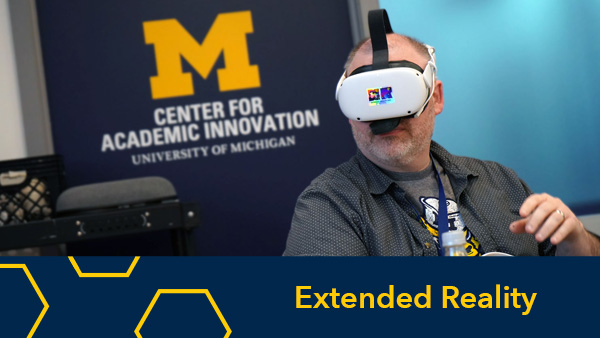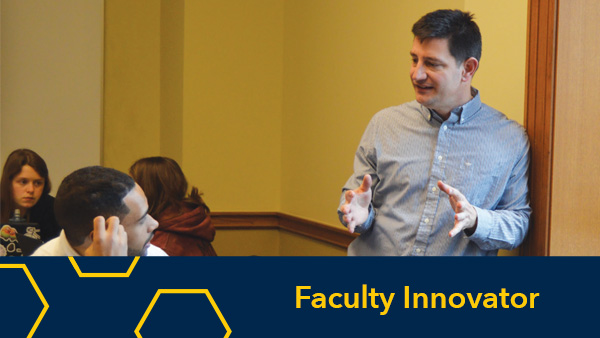Onawa Gardiner, Marketing Specialist
@onawanna
First year students entering the U-M Law School program are challenged to learn and retain core information related to legal practice in order to apply it to their future careers.
By flipping the legal practice classroom Nancy Vettorello, Clinical Assistant Professor of Law, and Beth Wilensky, Clinical Assistant Professor of Law, provide students with the opportunity to engage directly in material during class time while also providing them with learning materials that can also serve as reference points throughout their careers. Flipping the Legal Practice Classroom focuses on a model that shifts the majority of theoretical instruction to an online format suited for individual study, thereby reserving class time for practicing law fundamentals.
“One of the advantages we’re seeing for the flipped classroom is the ability to watch our students engage in those skills” – Professor Vettorello
With this system, the flipped classroom model equips students with the knowledge and skill set to critically analyze and apply legal practice fundamentals to a range of situations during class time and in future, professional scenarios. Additionally, these exercises assist first year law students in the transition from undergraduate writing, which was written with professors as the main audience, to a legal writing style aimed at providing clients with a clear understanding of the information presented in order to make a decision.
“These are skills that you can’t learn by having somebody lecture to you about them…to learn how to conduct legal analysis, to conduct legal research and to produce outstanding legal writing you have to do it.” – Professor Wilensky
The flipped classroom approach provides students with rich digital media assets to engage with prior to attending class while also allowing class time to focus on practical exercises. Specifically, these exercises focus on writing and subject comprehension and enable the generation of instant instructor and peer feedback to promote students’ writing and analysis capabilities.
In addition to enabling students to engage in intensive interactive training, the flipped legal classroom model also packages media assets on legal practice for future reference.
Additionally, this flipped classroom design restructures the learning experience and assists students and faculty alike with optimizing higher education through the exploration of academic innovation within the residential experience.
To learn more about Professor Vettorello and Professor Wilensky’s work as Academic Innovators with Flipping the Legal Practice Classroom, watch the Academic Innovators video:


